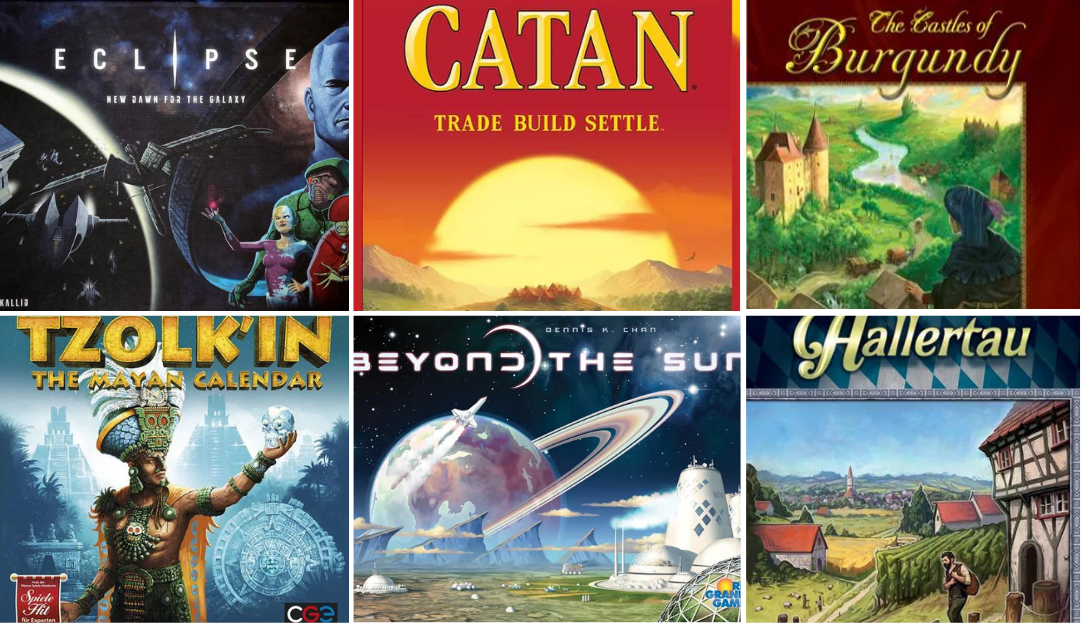Welcome to this week’s gaming post! This is the follow-up to the post I did a few weeks ago where I discussed a few games that have grown on me over time. This time I’ll be flipping it and will discuss games that I enjoy less now compared to when I first played them. This doesn’t necessarily mean I dislike any of these games, rather it speaks more to how my taste in games has changed over the years or how the game has held up through repeated plays. So without further ado, let’s jump into the games.
Honorable Mention: Eclipse: New Dawn for the Galaxy
- Designer: Touko Tahkokallio
- Complexity: Heavy
- Time: 60-180 Minutes
- Players: 2-6
- Main Mechanisms: 4X (explore, expand, exploit, exterminate)
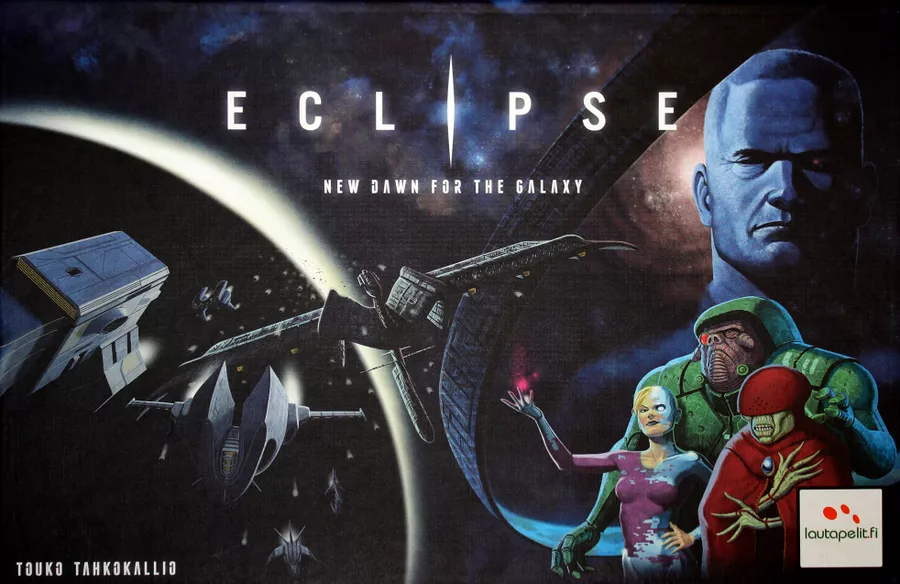
Kicking off this list with an honorable mention – Eclipse: New Dawn for the Galaxy. In this 4X game, players take control of an alien race and compete with other players to explore new systems, colonize planets, research technologies, and wage war. There are a few unfortunate reasons this game made this list. First, the game is way too long. The box says one to three hours, but at higher player counts (up to six players), this game will easily surpass the three hour mark – yikes! Next, there’s a bit of luck with exploring new systems. Since these are randomly drawn from a stack, you may just get unlucky with the draw. This can be especially punishing early due to this game’s snowball effect where if you start out slow, it becomes very difficult to catch up. Again, this is compounded by the length of the game, so if you have a bad start, it’s not much fun to go through the motions for the next three plus hours. Finally, my biggest gripe with Eclipse is that the back half of the game mostly boils down to whoever can build the best ships. Unless the other players are not paying attention, it’s hard to just turtle up, do your own thing, and still win. The only reason that Eclipse is not ranked higher on this list is that I think I liked the concept of Eclipse more than I actually enjoyed my initial plays of it. I would try the second edition if presented the opportunity, but even then, if I’m looking for an epic space-themed game, I’d likely lean towards something like Voidfall over Eclipse.
5. The Castles of Burgundy
- Designer: Stefan Feld
- Complexity: Medium
- Time: 30-90 Minutes
- Players: 2-4
- Main Mechanisms: Dice Rolling, Tile Placement
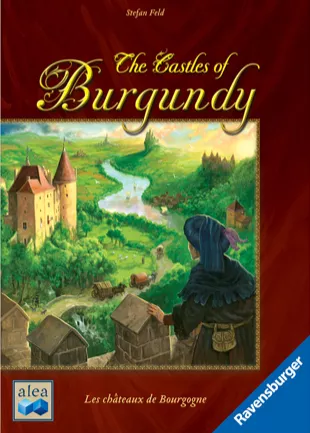
Let me preface this next choice – I enjoy The Castles of Burgundy, and compared to Eclipse, I’d rank this game miles ahead. In The Castles of Burgundy, players take turns rolling two dice, and then they use their dice to claim tiles from a shared board and then place those tiles onto numbered spaces on their player board. I enjoy the gameplay puzzle of figuring out how to fill up your player board, and there are a good number of ways to mitigate the dice rolls. However, this has to be one of the, excuse my language, driest euro games I own, and the theme here is almost entirely nonexistent. The main reason this game shows up on this list is that I don’t find myself pulling this one out as often anymore. As my collection has grown, I have found other euro games that scratch a similar itch, but are either faster, have stronger themes, or have more enjoyable mechanisms. I’m content to bring this one out occasionally, but it is no longer one of my go-to euro games.
4. Hallertau
- Designer: Uwe Rosenberg
- Complexity: Medium
- Time: 50-140 Minutes
- Players: 1-4
- Main Mechanisms: Worker Placement
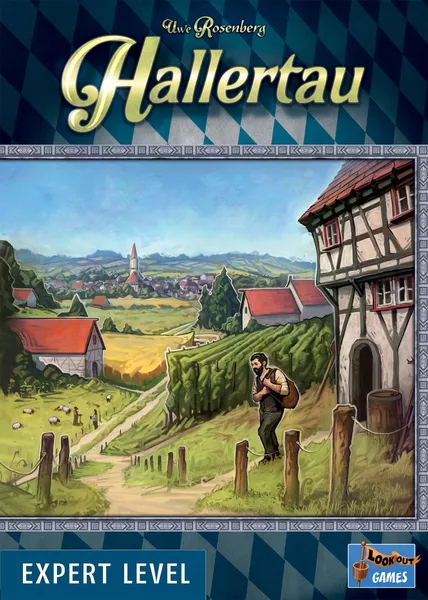
I really enjoyed my first few plays Hallertau. This is another one of Uwe Rosenberg’s “patented” farming games, except you don’t have to worry about feeding your workers. There are a lot of things I enjoy about this game: the field rotation system, worker placement spots that get more expensive as more players use them, and the puzzle of figuring out how many resources and tools you need to advance your community center. However, the most polarizing mechanism in this game by far is its cards. It feels great when you’re able to combo cards together, but it can be equally frustrating watching others get lucky with their draws while you keep drawing the exact opposite of the card you need. This creates a ton of card draw luck in the game, and it can make the game feel very swingy. In my first few plays of the game, I didn’t mind this as much, but as I’ve played Hallertau more, I’ve seen more instances of the cards dictating your success in the game. For a two-plus hour competitive euro game, this luck can be more than a bit frustrating. Compared to other euros like Viticulture that also have card draw luck, I find it to be more pronounced in Hallertau. I still enjoy the game and will happily play it from time to time, but as it sits on my shelf next to Caverna, I can’t help but lean more towards Caverna.
3. Tzolk’in: The Mayan Calendar
- Designers: Simone Luciani, Daniele Tascini
- Complexity: Heavy
- Time: 90 Minutes
- Players: 2-4
- Main Mechanisms: Worker Placement
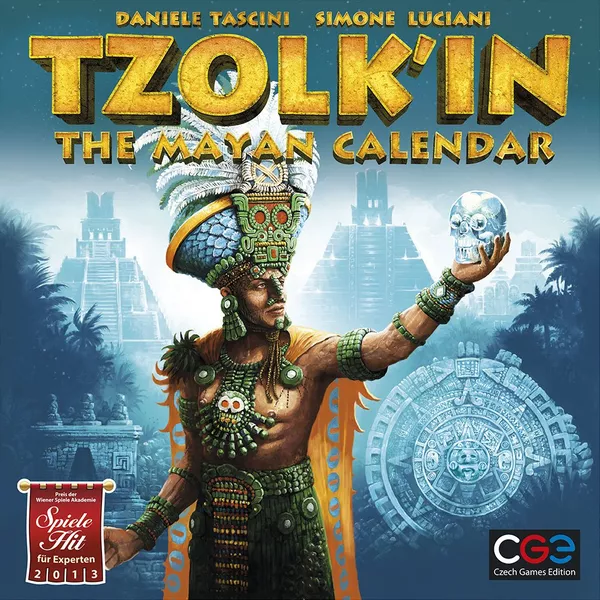
Next up is Tzolk’in: The Mayan Calendar. Tzolk’in has one of the most interesting mechanisms tied to its theme. There are five rotating wheels, and each turn, players have to either place their workers onto the wheels or take their workers off to trigger the action. At the end of each round, each of the dials will rotate, so the longer a worker stays on a wheel, the stronger the actions get. This is a game where I can appreciate a game’s design and mechanisms, but also realize that it isn’t my cup of tea. The game is incredibly crunchy since you often have to plan many turns in advance to figure out the optimal timing to place and retrieve your workers. The more I’ve played Tzolk’in, the more it’s made me realize that I really do prefer tactical games rather than strategic ones, and my brain is always exhausted after a play of Tzolk’in. At this point, I’d rather appreciate the game’s design from a distance rather than return to it.
2. Beyond The Sun
- Designer: Dennis K. Chan
- Complexity: Medium
- Time: 60-120 Minutes
- Players: 2-4
- Main Mechanisms: Worker Placement, Tech Tree
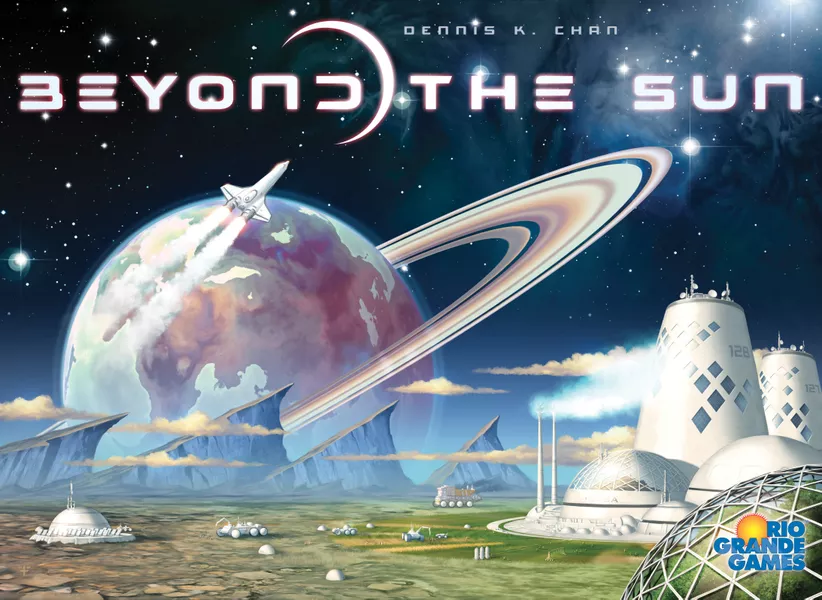
In one of my first posts, I talked about how my enjoyment with Beyond the Sun had waned after repeated plays, which was actually the inspiration behind this post. In the game, players take turns taking an action on one of the research cards they have researched. Over the course of the game, players will research more technologies, which will unlock better worker placement actions. As I touched on in my initial post, this uniqueness of building out your worker placement spots was exciting during my first few plays. However, lately this feeling has waned, and the rest of the game isn’t interesting enough to keep pulling me back often. I’d still happily play Beyond the Sun, but I don’t think I’ll usually be the one to suggest it.
1. Catan
- Designer: Klaus Teuber
- Complexity: Light
- Time: 60-120 Minutes
- Players: 3-4
- Main Mechanisms: Dice Rolling, Route Building, Trading
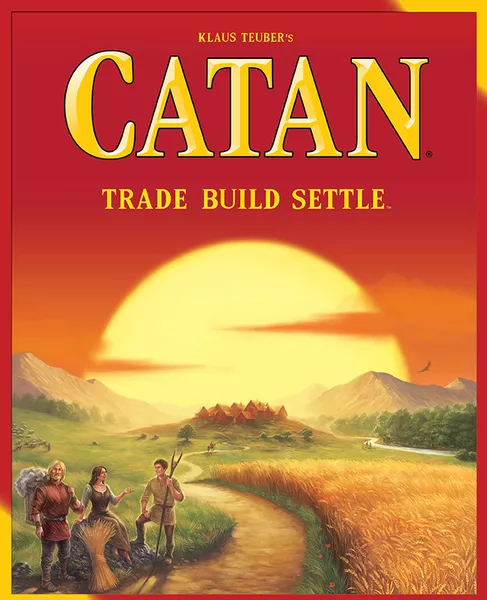
Finally, the big one. The game that brought many, including myself, into the world of modern board gaming. I’ve talked about how without Catan, I don’t know that I would have gotten into this hobby. I debated even including it on this list, but it felt almost fitting. See, I can’t remember the last time I played a game of Catan. My copy, along with the Seafarers expansion, is still collecting dust at my parents’ house. We used to play this game nonstop as a family back before I started tracking plays, but if I had to guess, this still may be my most played game of all-time. However, even with all of those fond memories, I still don’t have any desire to get Catan back out. If I were to play Catan again, I can’t imagine that its design would still hold up when I think about what I enjoy in more recent board games. And I think I would find the luck, along with trading, to be very frustrating. I’m incredibly appreciative of Catan’s impact on the world of board gaming, but now whenever I hear someone mention Catan, I can’t help but think, “That’s awesome, but have you tried this other game?” There’s so much more to be explored beyond Catan that I’m glad I’ve moved on to other games.
With that, I’ll wrap up this week’s post! I’d love to hear your thoughts on any of the games I’ve mentioned, future content, or format in the comments section below, and let me know which games have fallen off for you. Happy gaming!
If you liked this post and want to be notified when new content is released, then follow me on Instagram @themeepledigest.
